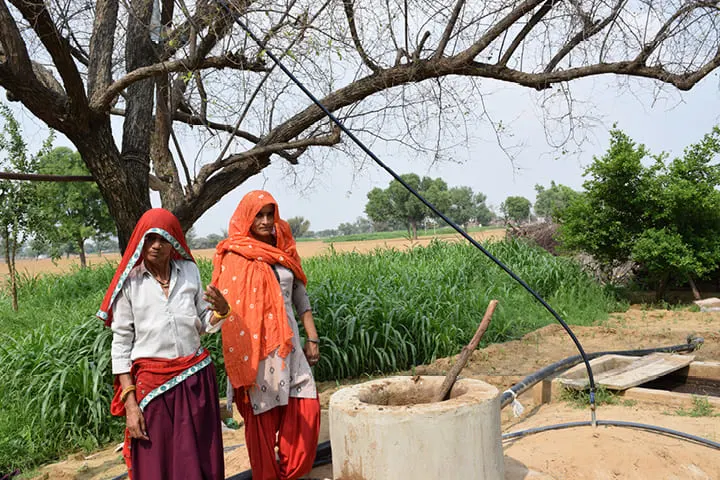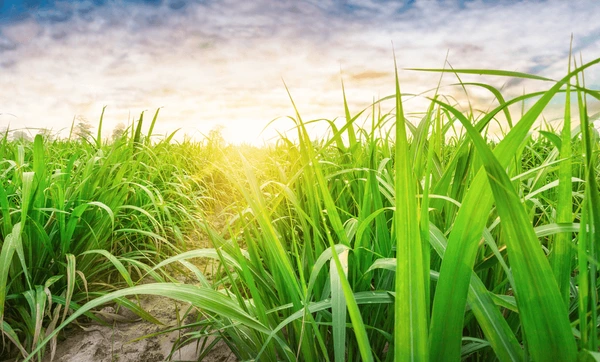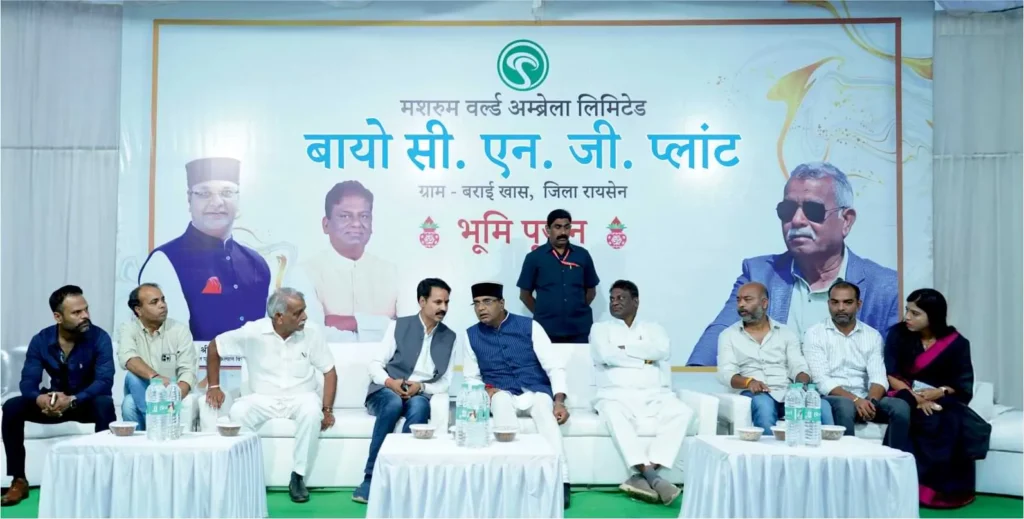Introduction
As Madhya Pradesh embarks on a green energy revolution, the Mushroom World Umbrella has taken a bold step by launching the state’s first Bio-CNG plant powered by Napier Grass. But what makes Napier Grass an ideal choice, and how is it transformed into a sustainable energy source? Let’s explore the science behind this innovation and how Mushroom World’s Bio-CNG plant promises to change the game for renewable energy in India.
Napier Grass as a Renewable Resource
Napier Grass, also known as Elephant Grass, is gaining popularity for its rapid growth, high biomass yield, and resilience in various climates. This perennial crop can grow in diverse conditions, making it an ideal choice for biofuel production. Its ability to regenerate quickly after harvest and withstand environmental changes allows for multiple harvests annually, offering a sustainable solution for clean energy without exhausting natural resources.


The Conversion Process: From Grass to Gas
The process of converting Napier Grass into Bio-CNG is complex but highly efficient. Here’s a breakdown:
- Collection and Pre-Processing:
Napier Grass is harvested and prepared by chopping it into smaller pieces.
- Anaerobic Digestion:
- Purification and Compression:
The biogas undergoes purification to remove impurities, resulting in Bio-CNG—a clean, high-energy fuel source ready for use.
This process reduces waste and harnesses energy from a renewable source, promoting a circular economy that minimizes environmental impact.
Environmental Benefits of Bio-CNG
Bio-CNG is an excellent alternative to conventional fuels like diesel and petrol. It produces fewer greenhouse gas emissions and offers a cleaner burn, reducing air pollution and contributing to a healthier environment. Mushroom World’s plant, with an initial capacity of 3,000 kg per day (scalable to 12,000 kgs), will help Madhya Pradesh cut its carbon footprint and lessen reliance on fossil fuels, supporting India’s green energy transition.
India’s Push for Renewable Energy
India’s renewable energy sector has seen rapid growth as the country aims to achieve ambitious sustainability targets. Bio-CNG production aligns well with these goals, providing an eco-friendly alternative serving multiple industries. With Mushroom World’s Napier Grass Bio-CNG plant, Madhya Pradesh is positioned to become a leader in renewable energy, setting an example for other states.
Wrap Up:-
Mushroom World Umbrella’s Napier Grass Bio-CNG plant is a breakthrough in clean energy, blending advanced biofuel technology with sustainable agricultural practices. By using a renewable resource like Napier Grass, the plant not only reduces dependency on fossil fuels but also creates a model for future biofuel projects across India. This project reflects the company’s dedication to eco-friendly solutions that support India’s renewable energy vision and inspire a cleaner, greener future. As Mushroom World continues to scale up its Bio-CNG production, it will undoubtedly play a pivotal role in shaping the renewable energy landscape in Madhya Pradesh and beyond



